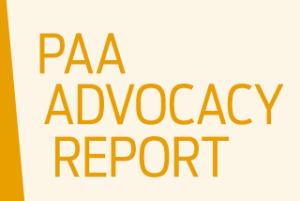
November 15, 2017 Advocacy Report
|
Dear Friend of the Arts: Last week, we wrote to you regarding the House version of tax reform legislation, the Tax Cuts and Jobs Act (outlined below). The Senate reform bill, released on November 9, also retains the charitable deduction and, like the House bill, doubles the standard deduction. (It also increases the limit on charitable gifts from 50% of adjusted gross income to 60% of AGI, which would support giving from high-income donors.) As reported last week, doubling the standard deduction means that 95% of taxpayers would not itemize, leading to a possible reduction in giving of $13 billion annually. The House and Senate will be voting THIS WEEK on new tax laws that will impact charitable giving for years to come. Arts leaders have been contacting their elected leaders throughout 2017, and we’re asking you to please reach out once again and join nonprofit organizations nationwide as we urge Congress to help Americans support their communities through charitable giving. On November 14, Senator Jim Lankford (R-OK) introduced the Universal Charitable Giving Act, which creates a universal charitable deduction in addition to the standard deduction for individuals and married couples that do not itemize, mirroring the House companion bill introduced last month by Representative Mark Walker (R-NC). Both of these measures would cap deductibility for non-itemizers at one-third of the standard deduction. On November 12, Senators Debbie Stabenow (D-MI) and Ron Wyden (D-OR) offered an amendment to support increased giving by proposing a universal charitable deduction. For additional information and a complete summary of the tax bills, including how they impact the arts please see below or follow this link to the National Council of Nonprofits website We ask you to please take a minute to urge Congress to support a universal charitable deduction. Every message you send makes a difference. If you contacted your elected officials in response to our most recent Action Alert, thank you–and please take action again today. Here is how the Senate tax reform bill(s) impacts several key issues:
Nonprofit Administration:
Arts-specific Policies:
The Performing Arts Alliance member organizations continue to monitor the situation, along with our colleagues in the broader nonprofit community, and will provide you updates as developments occur. |

